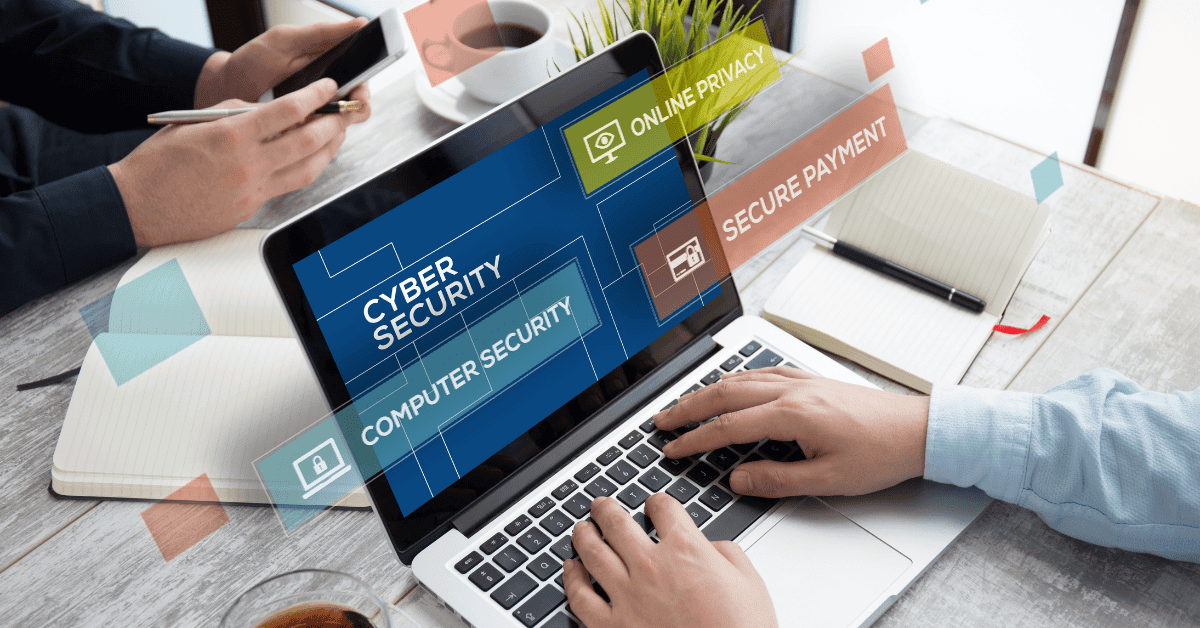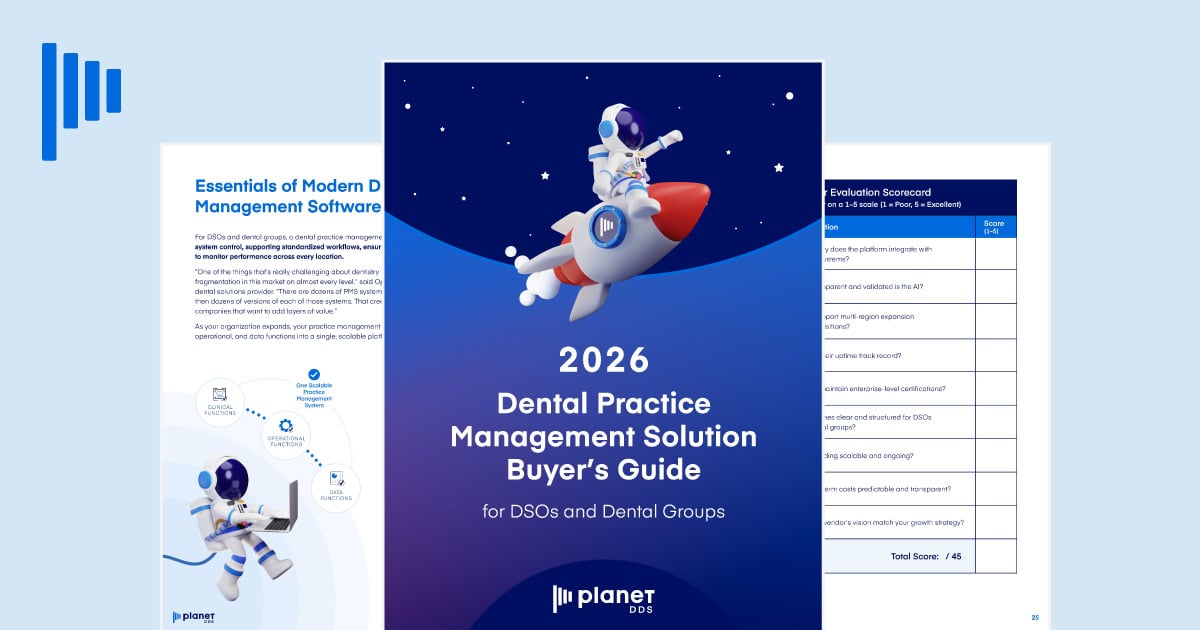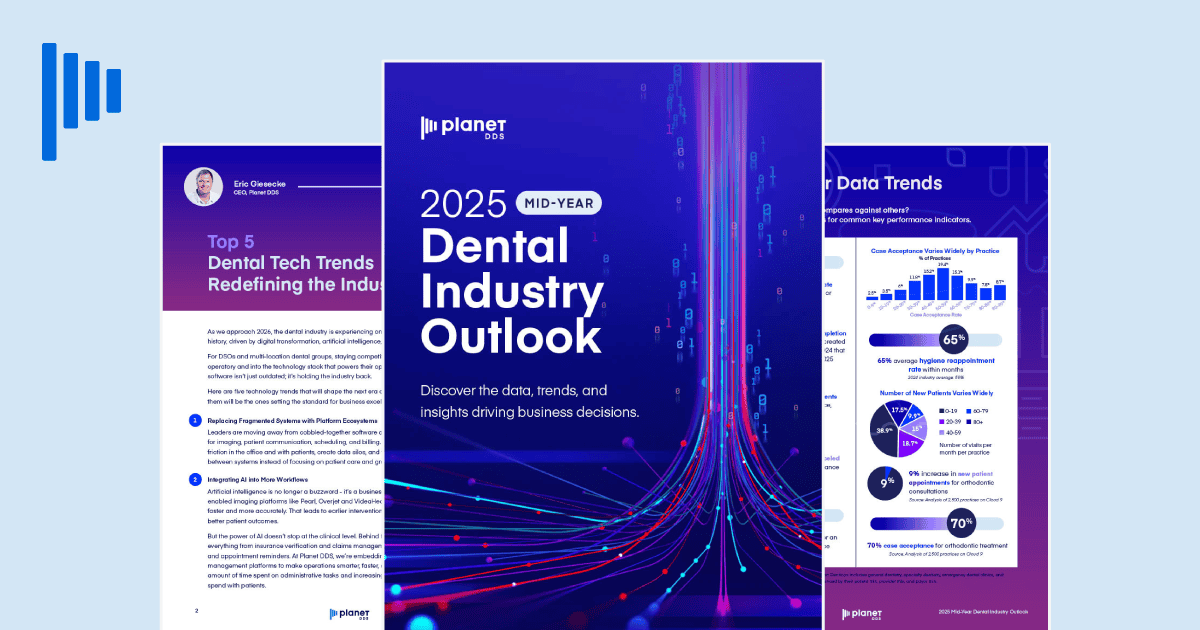Why Cybersecurity for Dental Practices is a Priority

The technology available to your dental practice has significantly evolved over 20 years. And with increased digital capabilities comes the need to increase your awareness about cybersecurity for dental practices.
Data accessed via your practice management software drives your appointment scheduling, billing, clinical processes like digital X-rays, and your use of electronic medical records (EMRs) and electronic health records (EHRs). That same data that’s available to you and your workflows is also vulnerable to cyber attacks.
Sophistication increases the need for equally sophisticated cybersecurity for dental practices
It’s common to assume that your internet firewall or your anti-virus software is enough of a safeguard for your sensitive data. But have you considered that if those protections were adequate why are data breaches more common than ever?
According to Gary Salman in a related article in Compendium,
”The technology landscape has shifted dramatically in the past 12 to 18 months, and hackers are setting their sights on healthcare entities, now more so than ever before. Practices across the country are being impacted by ransomware and malware attacks that shut down and compromise networks. To combat these sophisticated attacks, practitioners need to take a holistic approach to cybersecurity.”
Before we explore those approaches there’s another practical consideration.
Safeguarding trust makes cybersecurity for dental practices essential
Your role as health care provider comes with a high degree of trust. First, there’s the trust you must maintain with the U.S. Department of Health and Human Services.
Their guidelines are strict and in place to protect patient records. A data breach will notify the Office of Civil Rights to conduct an investigation into the breach.
Following such a breach, your HIPAA compliance, responsibility for cybersecurity training, and general practice IT network protections will be evaluated stringently.
And yet beyond governmental trust an equally and perhaps more valuable trust worth guarding is that of your patients.
Cybersecurity requires vigilance and proactive strategies. Those who have experienced a data breach confirm that the financial and social impact on their dental practice was substantial.
It’s not uncommon for breach mitigation to cost hundreds of thousands of dollars. And perhaps more irreparable is that subsequent loss of patient trust.
What can be done to implement cybersecurity for dental practices like yours?
1. Conduct a thorough audit of your cybersecurity protocols
Such an audit will most often require third party assistance. Cybersecurity firms are equipped to work in tandem with the person responsible for your practice IT or with the outside IT firm you use.
Cybersecurity professionals will do a broad fly-over of your practice’s IT landscape. Their related inquiries will include questions about…
- Your location and process for data storage
- Your systems for protecting your data
- Who has access to your data and how access is gained
- Your onsite team members and those working remotely
- Your relationship with billing companies and their log-in access to your dental practice network
- Your team’s use of portable storage devices that contain electronic protected health information (ePHI) and that could be lost or stolen
- Your data encryption technology that protects ePHI
Keep in mind that data network vulnerabilities are common. But the most common vulnerability is those who actually use the network – you and your team!
The human factor is a key source of data breaches.
Hackers are drawn to human error. Their ransomware attacks are often designed and deployed to fool an email recipient.
For example, an email could be sent to a team member using your address. An unsuspecting click on a link within the email would then execute a file download that initiates a ransomware attack on your server and files. Such a hacking incident should then be reported to law enforcement.
A cybersecurity audit is effective to mitigate breaches and also inform you and your team of related vulnerabilities. The HIPAA Security Rule is in place to require practices to take advantage of cybersecurity awareness training.
Audits and training focuses on IT system strength and how to avoid human error.
Cybersecurity data reveals that healthcare organizations (including dental practices) experience a 50% to 75% reduction in cyber attacks as a result of properly training their staff.
System tools can be deployed during a cybersecurity audit. The tools scan for vulnerabilities, gather essential information about your IT network, and run vulnerability tests.
Discovered data is provided to your practice’s IT company or designated IT person. The system can then be more effectively “locked” to prevent further breaches.
It’s recommended that system testing be conducted on a quarterly basis. And on occasions when you upgrade, modify, or add new network devices or capabilities.
2. Subject your network to a penetration test
Penetration testing allows your IT network to experience a faux hacking incident. An “ethical” or “white-hat hacker” will use the same tactics and tools that a cyber criminal would when attempting to break into your network.
The upside of complying with the test is that the ethical hacker deploys problem-solving techniques when hacking into your system.
- Vulnerabilities are discovered and solved
- Network weaknesses are exploited to reveal necessary solutions
- Test findings are provided and risks can be mitigated
Cybersecurity tests also enable you to create and deploy a recovery plan if you experience a breach or attack. If your practice management system or your clinical technologies are compromised or disabled following your plan protocols you can get your servers back online and operational.
Without such plan it can delay data restoration for a long period of time. A system disruption could cripple your dental practice for a period of days until the data is restored.
The good news is that an IT company can provide a local back up device and a cloud back up that performs a system back up multiple times daily.
This gives you quicker access to your essential data following an attack or breach. Cloud restoration provides additional capabilities if you experience a catastrophic event such as fire or flood.
Planet DDS’s Denticon is the proven Dental Practice Management Software in today’s market among solo private practices, private group practices, and top DSOs.
The Dental Dashboard streamlines IT operations and reduces hardware costs.
Contact us for more information about how Denticon can streamline your systems and operational tasks and provide confidence for recovery from a data security threat.



